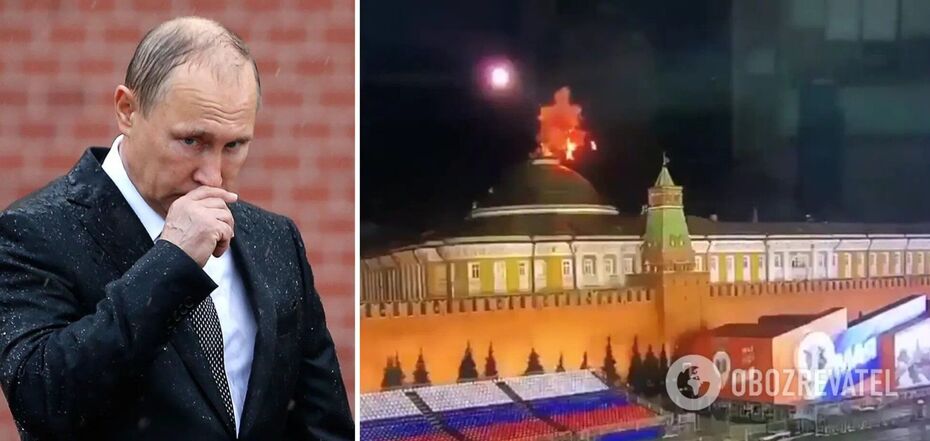Life
"Bavovna" near the Kremlin revealed Russia's vulnerability: British intelligence pointed out the nuances of May 9
As of May 6, six Russian regions and Russian-occupied Crimea had canceled parades until May 9 "for security reasons," while Moscow's parade will probably be smaller than before. Also in Russia this year, there will be no propaganda campaign, "The Immortal Regiment.
The recent night-time "drone attack" on the Kremlin also played a significant role in making the Russian authorities aware of Russia's vulnerability to attacks. That's the conclusion drawn by the British Defense Ministry.
The British defense ministry drew attention to the mass cancellation of parades before May 9 and the "Immortal Regiment" procession in Russia and in the occupied territories of Ukraine.
"Six Russian regions, occupied Crimea and 21 cities have canceled Victory Day parades on May 9 for security reasons. Victory Day honors the Soviet Union's victory over Nazi Germany. The traditional Victory Day "Immortal Regiment" procession, where Russians display photos of fallen World War II veterans, has also been canceled. This follows the recent cancellation of the Army International Games, which Russia hosted," the British Defense Ministry said in a statement.
Victory Day will still be celebrated in Moscow but on a more modest scale than before. Russian President Vladimir Putin will not receive a reception after the parade. The last time it was held back was in 2019.
The decision to scrap the May 9 celebrations was influenced by recent drone strikes on the Kremlin, which occurred days before the planned celebrations, as well as the Russian authorities fear of possible protests by disgruntled Russians.
"The timing of the UAV strikes on the Kremlin days before Victory Day shows Russia's increased vulnerability to such attacks and almost certainly increased the Russian leadership's threat perception of Victory Day events. The possibility of protests and dissatisfaction with the war in Ukraine also likely influenced the Russian leadership's calculations," the BLP concluded. The British defense ministry summarized.
As a reminder, on May 3, Russia said that Ukraine attempted to assassinate Putin. This statement was made by Dmitry Peskov, spokesman for the Russian dictator, after videos of explosions and smoke over Red Square on the night of May 3 were leaked online. According to the Russian version, Ukraine allegedly attacked one of the Kremlin's main structures with two drones.
The office of the Ukrainian president commented on the night attack on the Kremlin, admitting that in this way Russia is trying to "justify" a large-scale terrorist attack in Ukraine, which it appears to be preparing.
At the same time, President Zelensky himself denied the accusations, saying that Ukraine was not attacking Moscow or Putin.
But Russians and Russian propagandists made a real hysteria over the "attack on the Kremlin": they called for Ukraine to be destroyed and for Kyiv and other cities to be bombed. The Russian Duma made hysterical threats and started talking about the need to kill Zelensky.
Meanwhile, the U.S. State Department was skeptical of Russian accusations that Ukraine was involved in the drone attack on the Kremlin, noting that the statements coming from Moscow should be "divided by two.
The Institute for the Study of War noted that the "attack" had been carefully planned. Russia staged the drone attack on the Kremlin in order to show the war to its domestic audience as something existential. The planned provocation could also be prepared for a broader mobilization in Russia. In particular, experts point out that against the background of a significant strengthening of air defense in the capital of the aggressor country, the explosion of a UAV directly over the Kremlin looks implausible.
Only verified information in our Telegram channel Obozrevatel and in Viber. Don't be fooled by fakes!



























